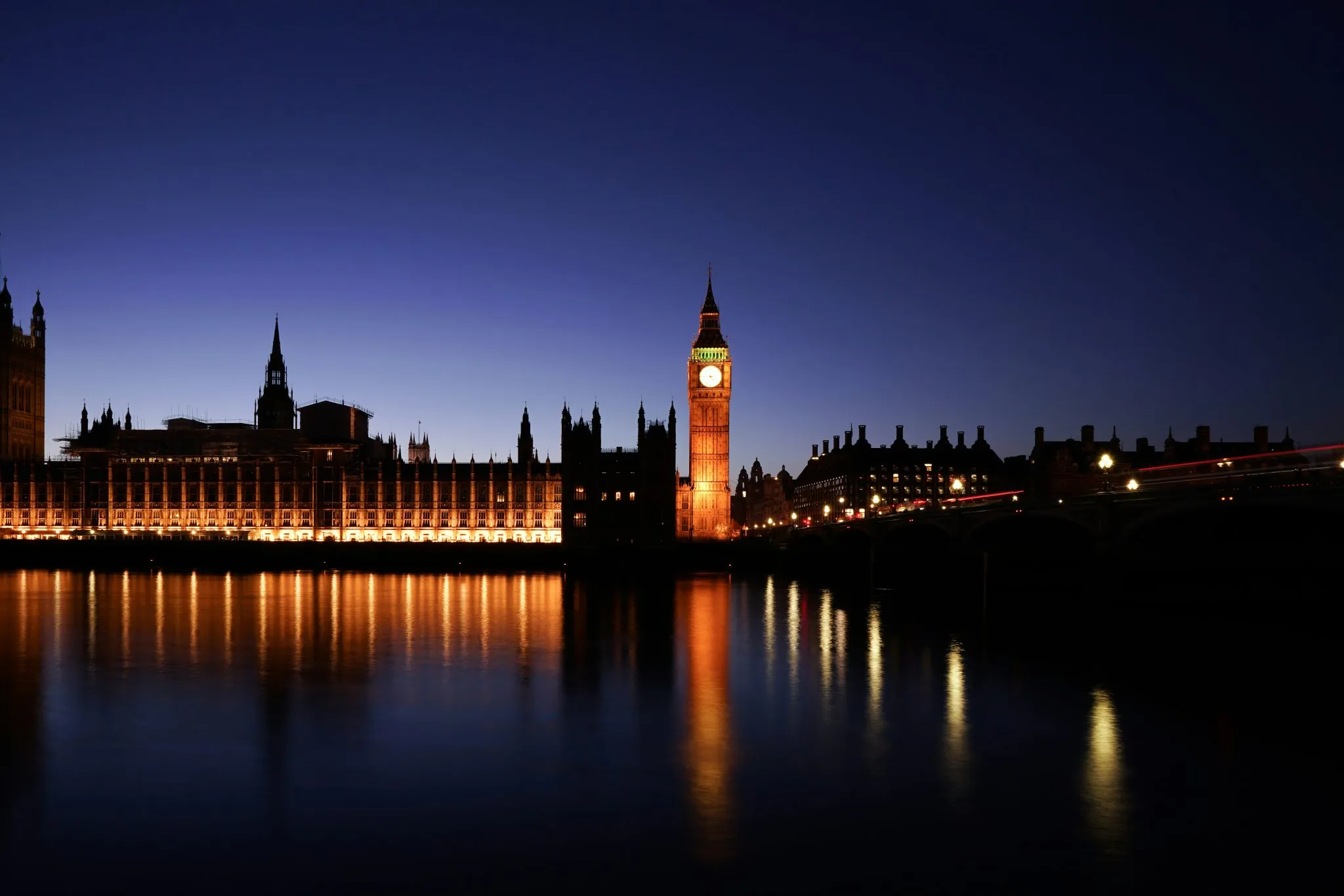UK Visa Refusal: Why And What to do Next
The Home Office can refuse a visa application for several reasons. However, there are some steps to take to revert the situation.
For more information on how we can help you reclaim your visa after a refusal, reach out to one of our friendly immigration advisers on 0333 305 9375, or contact us online today.
Read our 1001 reviews
An Overview of UK Visa Refusals
Each visa application form submitted to the UK immigration authorities is scrutinised thoroughly before being given approval or rejection. This process is very strict and rigorous.
Unfortunately, many UK visa applications are rejected each year. The visa rejection rate is over 15%, and it includes refusals for Family visas, Study visas, Work Permits, and Visitor visas.
Receiving a visa rejection can be very disappointing and sometimes demoralising when you consider the time, effort, and financial resources invested in the application. Luckily, there are some remedial options available, depending on your type of visa application and the nature of the visa refusal.

Why a Visa Application May be Refused
UK Visas and Immigration (UKVI) set out general grounds for refusal under part 9 of the UK immigration rules. The rules outline various suitability requirements that visa applicants must meet to avoid grounds for refusal.
In other words, a visa application will be refused if an applicant is not considered suitable by the Home Office. The general suitability requirements must also be met in addition to other eligibility and validity requirements set out on each visa route.
The decision to reject a visa will be determined by the Home Office caseworker based on a mandatory (must) or discretionary (may) basis. Besides the general grounds for refusal, some UK visa routes also have their own or additional suitability requirements which applicants must meet.
It’s important to know that the grounds for refusal are not only applicable to entry clearance applicants. The rules apply also to individuals seeking permission to enter the country and permission to remain.
Furthermore, sections 3-5 of part 9 also outlines additional grounds for refusal for applicants seeking entry clearance, permission to enter, and permission to remain.
General Grounds for UK Visa Refusal
The general grounds for refusal are set out in section 2 of part 9. They include the following:
Exclusion, Deportation or Travel Ban Grounds
A UK visa application will be refused and an entry clearance cancelled under the following situations:
- If the applicant is the subject of a deportation order or a decision to make a deportation order
- If the applicant is the subject of an exclusion order
- Where the Secretary of State has personally directed that the applicant be excluded from the country.
Non-conducive Grounds
An entry clearance application, permission to enter or permission to stay must be cancelled if it is determined that the applicant’s presence in the UK is not conducive to the public good.
It could be because of their conduct, character, or association. It can also include if the applicant has been convicted of an offence that does not fall within the criminality grounds.
Criminality Grounds
An application for entry clearance must be refused under the following situations
- Where the applicant has been convicted of a crime in the UK or overseas for which they have received a custodial sentence of 12 months or more. This will not apply to applicants seeking a visitor visa for a stay of less than 6 months whose criminal convictions were dated over 12 months ago.
- Where the applicant is a persistent offender who shows a particular disregard for the law
- Where the applicant has committed a criminal offence or offences which caused serious harm
- Where the applicant has been convicted of a criminal offence in the UK or overseas for which they have received a non-custodial sentence or received an out-of-court disposal that is on their criminal record (not applicable to applicants seeking visitor visas for a stay of less than 6 months and where 12 months has passed since the date of their convictions.)
Exclusion From Asylum or Humanitarian Protection Grounds
The Secretary of State may refuse an application for entry clearance if it is determined that paragraphs 339AA (exclusion from Refugee Convention), 339AC (danger to the UK), 339D (exclusion from a grant of humanitarian protection) or 339GB (revocation of humanitarian protection on the grounds of exclusion) applies to the visa applicant.
If these paragraphs apply and the applicant has not made a protection claim in the UK, or their protection claim was not determined in reference to the matters in these paragraphs, entry clearance will also be denied.
Involvement in a Sham Marriage or Civil Partnership Grounds
If the Home Office decides that it is more likely than not that the applicant is or has been involved in a sham marriage or sham civil partnership, their entry clearance application may be refused.
False Representation Grounds
An application may be refused if, in relation to the application or in order to obtain documents in support of the application, the following happened whether or not to the applicant’s knowledge:
- False representations are made
- False documents or false information submitted
- Relevant information or facts are not disclosed
Previous Breach of Immigration Laws Grounds
An application must be refused if the applicant has previously breached immigration laws and the application was made within a relevant time period. Some relevant periods include:
- Within 12 months and if the applicant left voluntarily at their own expense
- Within a period of 10 years and if the applicant was deported from the UK at public expense.
If the applicant breaches more than one immigration law, only the breach with the longest absence period from the UK will be taken into account.
Also, if, in addition to a previous immigration breach, the application is made outside the relevant time period and there are other aggravating circumstances, such as failure to comply with the enforcement process, the application will be refused.
Failure to Provide Required Information Grounds
An entry clearance application will be refused if an applicant fails without reasonable excuse to comply with a reasonable requirement to:
- Attend an interview
- Provide information
- Provide biometrics
- Undergo a medical examination
- Provide a medical report
Admissibility to the Common Travel Area or Other Countries Grounds
An application must be refused if the applicant intends to enter another part of the Common Travel Area without satisfying the Home Office that they are acceptable to the immigration authorities over there.
Debt to the NHS Grounds
If a relevant NHS body notifies the Secretary of State that an applicant fails to comply with relevant NHS regulations on charges to overseas visitors, and the outstanding charges are at least £500 in total, their entry clearance will be refused.
Unpaid Litigation Costs Grounds
If an applicant fails to pay the litigation costs awarded to the Home Office, their entry clearance application will be refused.
Purpose Not Covered by the Immigration Rules Grounds
An application for entry clearance may be refused if an applicant is seeking to come to or stay in the UK for a purpose not covered by the immigration grounds rules.
What to do Next After a Visa Refusal
If your visa application is refused, you will be notified of the same in writing with reasons for refusal stated in the refusal letter. You may have some options to revert the situation.
The general course of action after a UK visa refusal includes administrative review, appeal and reapplication. However, all these options are not available to every applicant.
The appropriate course of action will depend on the application submitted and the nature of the visa rejection, and it will be stated in your refusal letter. For example, a visa rejection under the points-based system can only attract an administrative review.
It’s important to note the date on the refusal letter as it is a reference point for how long you have to take action to change the decision. If you are outside the UK, you only have 28 days and 14 days if you are within the country to apply for an appeal or an administrative review.
Apply for an Administrative Review
You can only apply for an administrative review if:
- You live outside the UK and applied outside the UK or
- You live in the UK and applied in the UK and
- You do not have a right to appeal against the visa refusal decision
- You didn’t apply on a standard Visitor visa
- You live in the UK, and your visa was approved, but you are unhappy about the conditions of your leave.
Your visa rejection letter will state if you have a right to an administrative review. If you decide to proceed with this option, you can apply online for £80.
You cannot apply for an administrative review after submitting a new application, as your request will be rejected. Also, your application for a review will be withdrawn if:
- You are in the UK and ask for your passport so you can travel
- You make another visa application after already applying for a review.
- You are in the UK, and you leave the country.
Getting a decision after applying for an administrative review might take up to 6 months or more. The Home Office will contact you with an update if a decision is yet to be reached within 6 months.
After the review process, you will receive a decision letter telling you if your visa was approved or if you need to apply for a second review.
Appeal the Visa Refusal
The right to appeal is available in cases where the Home Office decision breaches UK laws regulating immigration policies, human rights, and interracial relationships. If you have the legal right to appeal, it will be stated in your visa refusal letter.
The appeal process can sometimes be time-consuming and complicated. If you are not an expert in UK immigration laws, it’s advisable to hire a lawyer with expertise in that area.
To appeal in most cases, you or your immigration lawyer can do so online. Only in some instances, such as those relating to EU Settlement Schemes, S2 Healthcare Visitor visas, and frontier work permits that you will need to appeal using a paper form.
Paper applications will require you to fill out a form IAFT-2 and pay £140 if your case requires a hearing or £80 if you don’t require a hearing. Submit the form along with supporting documents and the necessary evidence to the First-Tier Tribunal (Immigration and Asylum Chamber) and, in some cases, to the Home Office.
You may be asked to attend a court hearing as part of the appeal process. If you’re outside the UK, you can request a video link or have your lawyer represent you.
The result of the tribunal’s decision will be sent to you on your online portal or via mail.
If the hearing is in your favour, the Home Office will grant you your visa. If it isn’t in your favour, you may be able to appeal to the Upper Tribunal or reapply.

Reapplication
If the case worker’s decision on your visa refusal is justified, it will be easier to file a fresh application than to go through an appeal process. For example, if you forgot to submit a required document or made a mistake in your application.
When you reapply, ensure you have the necessary documents or that your current circumstances are sufficient to grant you a visa approval.
Do you Get a Refund After a Visa Refusal?
The UK visa fee is non-refundable. However, if you pay for IHS (Immigration Health Surcharge) during your application, you might get a refund.
How Can IAS Help You?
Receiving a visa refusal can seem very daunting. If you find yourself in this situation, do not despair.
Our lawyers at IAS have many years of experience in UK immigration laws. We are also experienced in handling cases relating to UK visa refusals.
We will thoroughly review your case and advise you on the appropriate remedial route, timelines, and expenses involved. If your case requires an appeal, we will be with you every single step of the process, from preparing the right appeal bundle to representing you at the hearing.
For more information about how we can help you or if you’d like to speak with one of our immigration lawyers, call us on 0333 305 9375, or contact us online today.
Table of Contents
Table of Contents will appear here.Table of Contents
Table of Contents will appear here.Legal Disclaimer
The information provided is for general informational purposes only and does not constitute legal advice. While we make every effort to ensure accuracy, the law may change, and the information may not reflect the most current legal developments. No warranty is given regarding the accuracy or completeness of the information, and we do not accept liability in such cases. We recommend consulting with a qualified lawyer at Immigration Advice Service before making any decisions based on the content provided.















